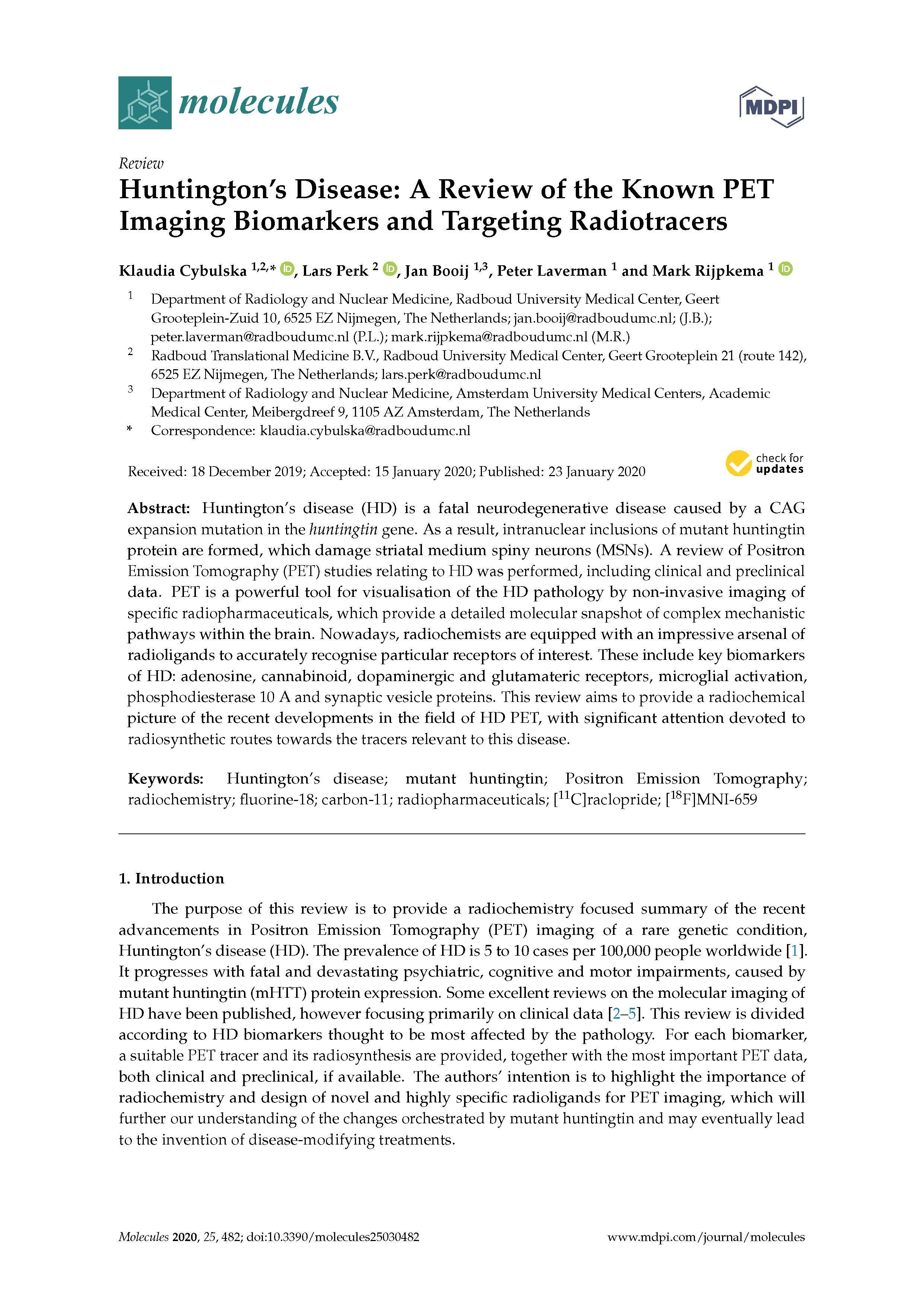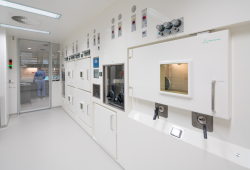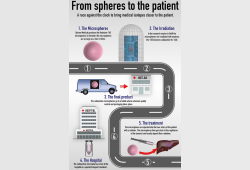Huntington’s Disease: A Review of the Known PET Imaging Biomarkers and Targeting Radiotracers
Klaudia Cybulska (postdoc radiochemistry) has written an article about Huntington's Disease.
Abstract: Huntington’s disease (HD) is a fatal neurodegenerative disease caused by a CAG expansion mutation in the huntingtin gene. As a result, intranuclear inclusions of mutant huntingtin protein are formed, which damage striatal medium spiny neurons (MSNs). A review of Positron Emission Tomography (PET) studies relating to HD was performed, including clinical and preclinical data. PET is a powerful tool for visualisation of the HD pathology by non-invasive imaging of specific radiopharmaceuticals, which provide a detailed molecular snapshot of complex mechanistic pathways within the brain. Nowadays, radiochemists are equipped with an impressive arsenal of radioligands to accurately recognise particular receptors of interest. These include key biomarkers of HD: adenosine, cannabinoid, dopaminergic and glutamateric receptors, microglial activation, phosphodiesterase 10 A and synaptic vesicle proteins. This review aims to provide a radiochemical picture of the recent developments in the field of HD PET, with significant attention devoted to radiosynthetic routes towards the tracers relevant to this disease.


Other news

LinkedIn post Isologic goes electric
🔌Isologic Goes Electric! We are excited to announce the expansion of our electric fleet with the a...

18F-FDOPA now available
Fluorodopa (18F) is now available for clinical studies and - with doctor's certificate - for routine...

RTM added as distributor NeuraCeq®
Exciting news! Life Molecular Imaging’s NeuraCeq® 300 MBq/ml solution for injection (florbetaben 18F...

First liver cancer patient treated with microspheres irradiated in TU Delft
Radboud Translational Medicine will perform the dispensing of below product. The production and dis...
Interested in a collaboration?
Contact us to discuss the possibilities.





